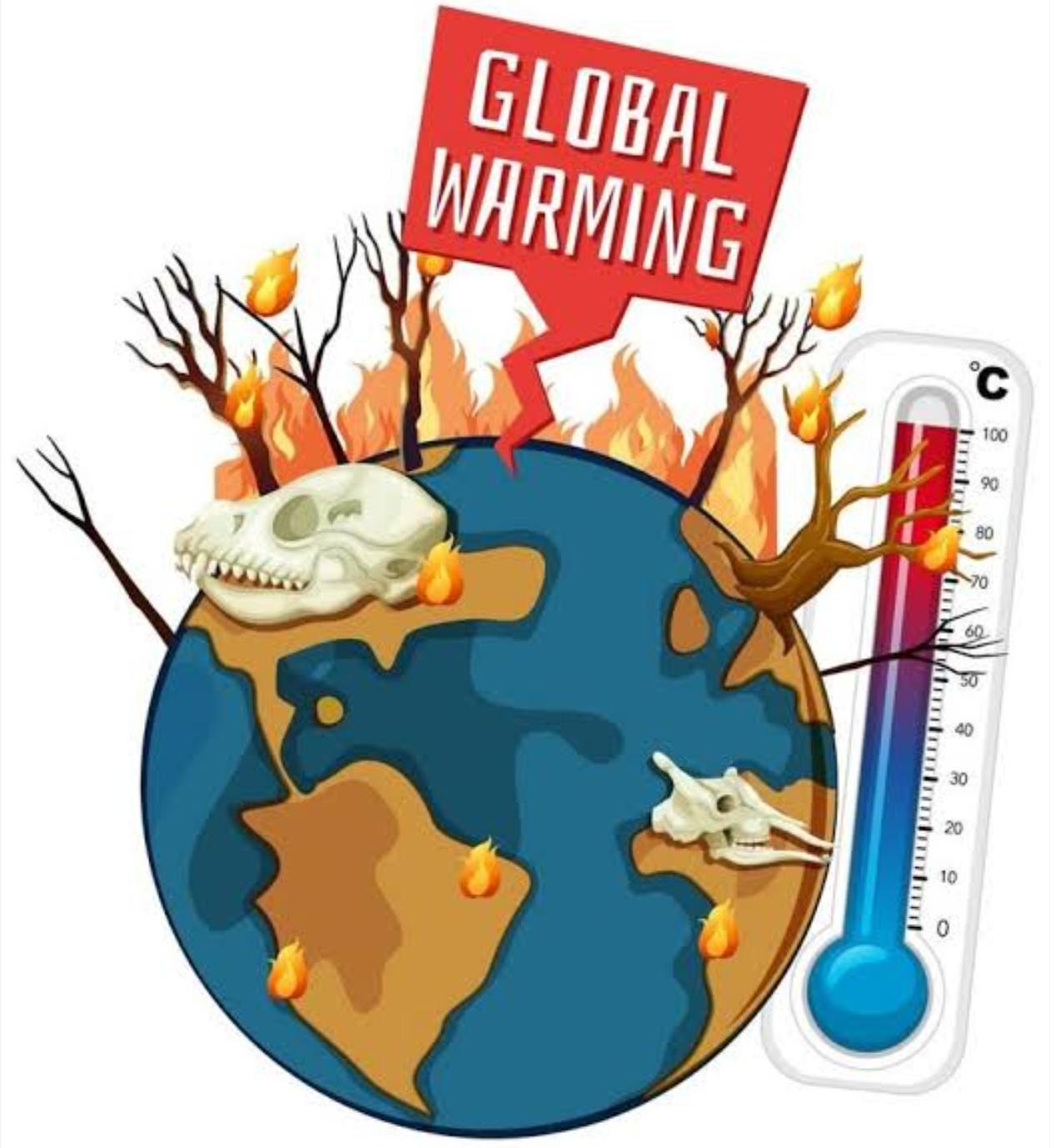Global Warming: A Crisis That Demands Immediate Attention
Global warming, often referred to as climate change, is one of the most pressing environmental challenges facing our planet today. It refers to the long-term increase in Earth's average surface temperature due to human activities, particularly the emission of greenhouse gases like carbon dioxide (CO2), methane (CH4), and nitrous oxide (N2O). These gases trap heat in the Earth's atmosphere, leading to a rise in global temperatures and triggering a cascade of environmental changes with profound effects on ecosystems, weather patterns, and human societies.
The Science Behind Global Warming
The Earth's atmosphere functions like a greenhouse, allowing sunlight to enter and warm the surface, while also trapping some of the heat that radiates back toward space. This is known as the greenhouse effect. Natural processes contribute to the greenhouse effect, but human activities, such as burning fossil fuels for energy, deforestation, and industrial processes, have significantly increased the concentration of greenhouse gases in the atmosphere.
The most significant contributor to global warming is carbon dioxide, which is primarily released through the burning of fossil fuels like coal, oil, and natural gas for electricity generation, transportation, and industrial activities. Other major sources of greenhouse gas emissions include agriculture (especially livestock farming, which produces methane), waste management, and land-use changes, particularly deforestation.
The Impact of Global Warming
The consequences of global warming are far-reaching and multifaceted, affecting not just the environment but also social, economic, and political systems around the world.
1. Rising Sea Levels
As global temperatures rise, polar ice caps and glaciers melt, contributing to a rise in sea levels. According to the Intergovernmental Panel on Climate Change (IPCC), sea levels have risen by about 8 inches (20 cm) over the past century, and this trend is expected to accelerate. Rising sea levels threaten coastal communities, increase the risk of flooding, and endanger freshwater supplies due to saltwater intrusion.
2. Extreme Weather Events
Global warming intensifies the frequency and severity of extreme weather events such as heatwaves, hurricanes, floods, and droughts. Warmer temperatures increase the amount of moisture the atmosphere can hold, leading to more intense rainfall and flooding in some regions. In others, it results in prolonged droughts, which have devastating consequences for agriculture, water resources, and food security.
3. Ecosystem Disruption
Global warming disrupts ecosystems by altering the habitats and migration patterns of various species. Rising temperatures, changing precipitation patterns, and more frequent extreme weather events can cause species to migrate, adapt, or face extinction. Coral reefs, for example, are highly sensitive to temperature changes, and ocean warming has led to widespread coral bleaching, endangering marine biodiversity.
4. Impact on Human Health
The effects of global warming on human health are already becoming apparent. Increased temperatures can exacerbate heat-related illnesses, such as heatstroke and dehydration, particularly in urban areas with insufficient cooling infrastructure. Additionally, warmer temperatures can facilitate the spread of infectious diseases, such as malaria and dengue fever, by expanding the range of disease-carrying mosquitoes.
5. Economic Consequences
The economic costs of global warming are staggering. Increased damage from extreme weather events, loss of agricultural productivity due to droughts or floods, and the displacement of communities due to rising sea levels all create significant financial burdens. In addition, industries like tourism, agriculture, and insurance face increased risks, leading to higher costs and financial instability.
Addressing Global Warming
Tackling global warming requires a concerted effort at the global, national, and local levels. Several strategies are necessary to mitigate the effects of global warming and adapt to its inevitable impacts:
1. Transition to Renewable Energy
One of the most crucial steps in reducing greenhouse gas emissions is transitioning from fossil fuels to renewable energy sources, such as solar, wind, hydro, and geothermal power. These sources produce little to no greenhouse gases and are essential for curbing the global rise in temperatures.
2. Energy Efficiency and Conservation
Improving energy efficiency in industries, homes, and transportation systems is another critical strategy. This includes using energy-efficient appliances, adopting electric vehicles, and implementing energy-saving practices in buildings and factories.
3. Reforestation and Sustainable Land Use
Forests act as carbon sinks, absorbing carbon dioxide from the atmosphere. Protecting existing forests and restoring degraded ones through reforestation and afforestation can help absorb excess CO2. Sustainable agricultural practices, such as agroforestry, also play a role in reducing emissions and enhancing biodiversity.
4. Carbon Pricing and Policy Changes
Governments around the world must implement policies that incentivize the reduction of carbon emissions, such as carbon taxes, cap-and-trade systems, or subsidies for green technologies. These economic tools encourage industries and individuals to reduce their carbon footprint and invest in sustainable solutions.
5. Global Cooperation and Climate Agreements
The Paris Agreement, signed by nearly every country in the world, represents a crucial step toward addressing global warming. The agreement aims to limit global temperature rise to well below 2°C above pre-industrial levels, with efforts to limit the rise to 1.5°C. However, achieving these goals requires continued international cooperation, strong political will, and financial investments in clean technologies.
Conclusion
Global warming is not a distant threat; it is already affecting communities and ecosystems around the world. While the problem is daunting, it is not insurmountable. By adopting comprehensive strategies to reduce emissions, invest in renewable energy, and promote sustainable practices, we can mitigate the worst impacts of global warming and build a more resilient and sustainable future for generations to come. However, urgent action is required—now is the time to confront this global crisis before its consequences become irreversible.

